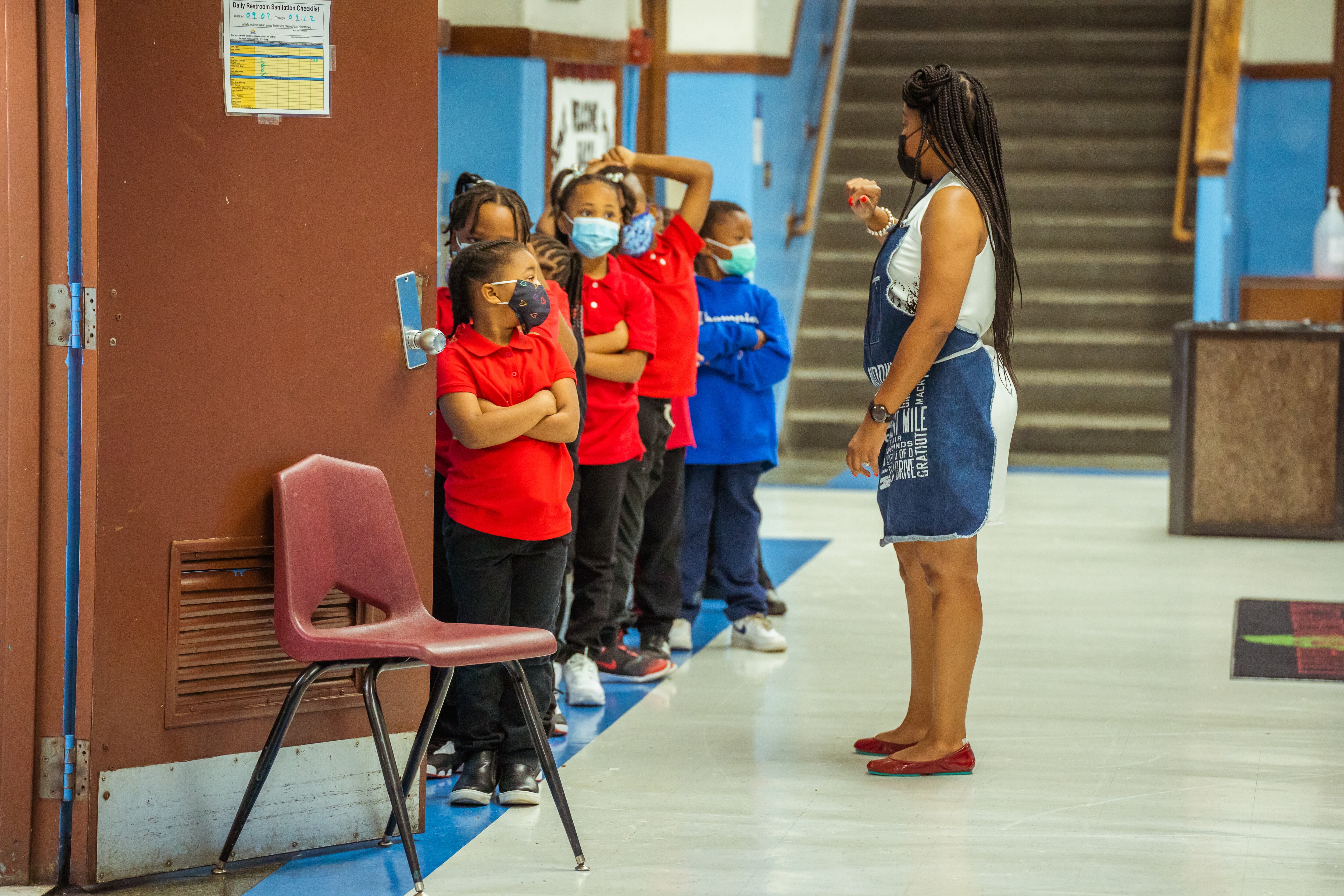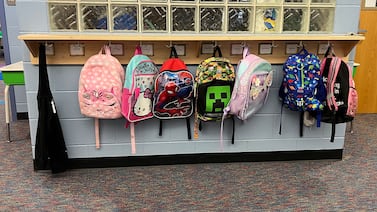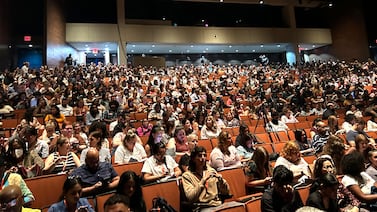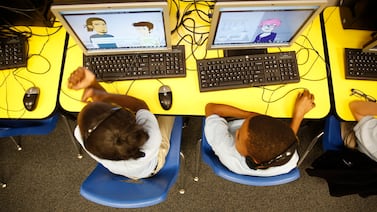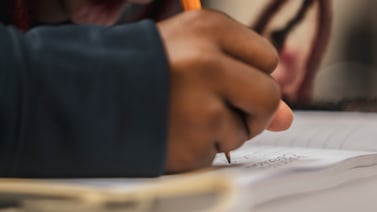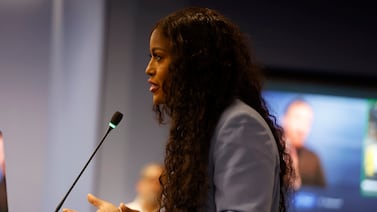Three weeks into the school year, Detroit Public Schools Community District officials still are fielding complaints from parents about its new virtual school.
Some of those concerns, about classes with no teachers and operational glitches, were aired during a virtual parent meeting Tuesday night with Superintendent Nikolai Vitti, who told parents the district is working to address the problems.
Vitti also provided an update on enrollment, which he said continues to look strong, and on district efforts to address support staff shortages.
The meeting was part of a series Vitti and school board member Corletta Vaughn have been holding to hear directly from parents and to answer questions.
Here’s what parents and Vitti had to say on some key issues:
K-12 enrollment on the rise
Vitti said district enrollment is “about where it was in the spring and it is increasing.” The district’s spring enrollment was about 49,000, according to state records. While that’s still below the pre-pandemic level of nearly 51,000 students, it was above where the district began in fall 2020.
In addition, he said, about 98% of students are back for in-person learning. “I’m just excited to see the vast majority of our students back in school,” Vitti said.
The superintendent suggested that the enrollment numbers were improved in part due to the district’s ongoing home visit program, in which parents and district employees knock on doors to track down students who haven’t attended school.
Virtual school off to rocky start
A handful of parents came to the listening session with complaints about the district’s virtual school.
“I do think our children with virtual learning have been slighted,” said Aliya Moore, a parent who said that her child, who has an individualized education plan, or IEP, did not have a resource teacher to support them while completing assignments or taking tests.
Another parent noted that her daughter lacked a teacher in three of her classes this semester. In several instances, she said, the principal took attendance and then her daughter and her classmates would “sit there for 45 minutes or however long the class is and not do anything.”
“(My daughter) doesn’t want to fail or see her grade point average drop because she is an honor roll student,” the parent said.
“I don’t want to push her back to Benjamin Carson (High School of Science and Medicine), but I do want her to be able to get her education the same if possible. She’s in the 11th grade so these are crucial times these next two years.”
About 2,000 families are currently enrolled in the virtual school, Vitti said. Prior to the beginning of the school year, 2,500 students were enrolled. The superintendent added that he and other school officials would look into parent complaints.
“The development of the virtual school could have been smoother,” Vitti said.
“The challenge was we were having conversations about virtual school back in June and trying to get a sense of how many families were going to sign up for virtual school.”
Increased interest in virtual learning brought challenges that the school has had to address in the past several weeks, including hiring certified teachers from outside the district to fill in needed roles.
“I will commit that those positions will be filled, Vitti said. As of this week, he added, the virtual school has to hire two more teacher positions.
District makes progress on employee shortages
Vitti also noted progress in addressing the district’s security guard shortage.
Earlier this month, Vitti told school board members that a shortage of guards was forcing the district to increase hourly wages.
On Tuesday, he said the district has since boosted security guard pay to $16 an hour, from $12.61.
Vitti estimated that the district had received 200 applicants for 40 security guard positions since the district held its own career fair to attract recruits.
“We’re seeing a lot of interest in it so we should be fully staffed with security guards soon,” Vitti said. “I think a lot of people do want to work for the district. It’s an opportunity to work with our students.”
The shortage has been exacerbated in part by the pandemic, when the district needed fewer security guards because fewer students were in buildings. With students back in the classroom, the district is currently seeking hourly employees for guards and other positions such as bus drivers, paraeducators, and cafeteria workers.
“Hourly wages and just hourly employment through the city and throughout metro Detroit is challenged right now, it’s hard to hire people right now at an hourly wage,” Vitti said. The district is negotiating with unions to offer similar wage increases for other positions.
Editor’s note: This story was updated after an editing error resulted in the incorrect number for virtual school enrollment prior to the beginning of the school year.

